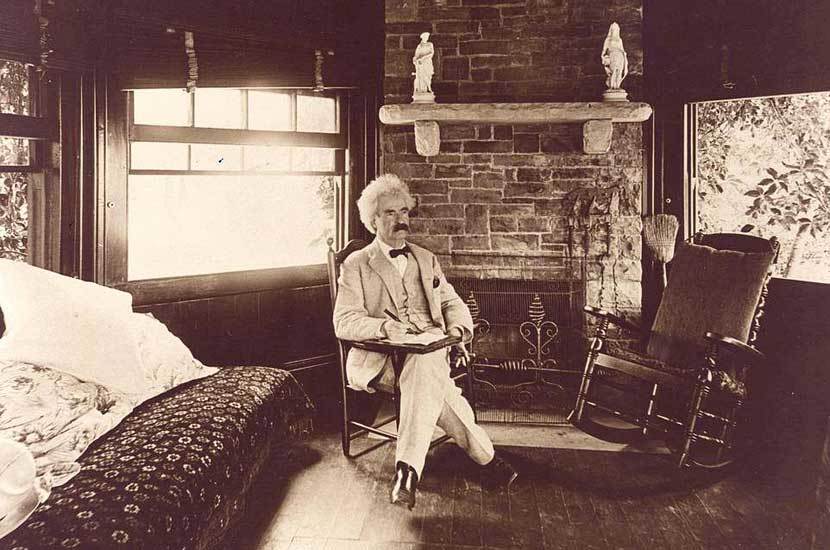Rudyard Kipling (1865–1936)
From The Mark Twain Anthology: Great Writers on His Life and Works

In 1895 Mark Twain heard that Rudyard Kipling, living in Vermont at the time, might be traveling to India the following year. He sent off a letter to the younger author:
“Years ago you came from India to Elmira to visit me, as you said at the time. It has always been my purpose to return that visit and that great compliment some day. I shall arrive next January and you must be ready. I shall come riding my ayah with his tusks adorned with silver bells and ribbons and escorted by a troop of native howdahs richly clad and mounted upon a herd of wild bungalows; and you must be on hand with a few bottles of ghee, for I shall be thirsty.”
As it happens, Kipling never made the trip. Financial considerations convinced him to move his family (with a newborn daughter) to England that year. In fact, although he lived until 1936, Kipling never returned to his homeland.
Kipling’s trip to Elmira to meet Mark Twain occurred in 1889, when Kipling was still completely unknown—although he had published six books in the previous year. Fortunately, soon after that first meeting, Kipling wrote an account of their “interview,” and we present it as our Story of the Week selection.



